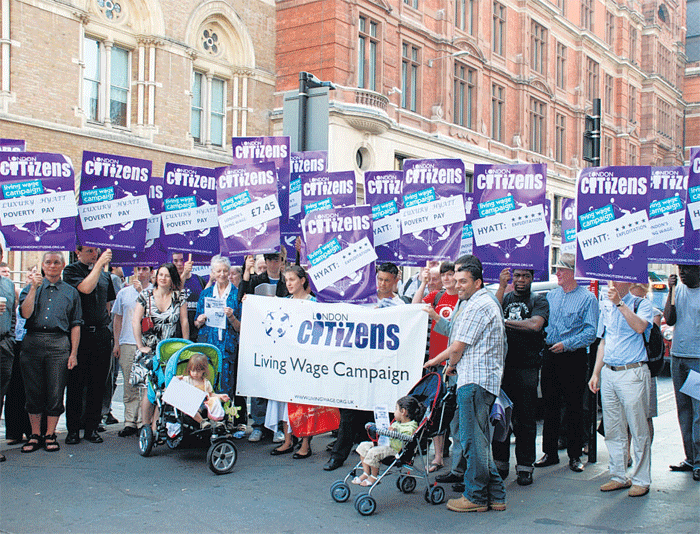Obama factor prompts MA in community organising
One British university plans to teach young people how to fight for political change

Capitalising on the Barack Obama factor, Queen Mary, University of London is to launch a new Masters in community organising this September. The course will follow those in the United States, which have seen an explosion in applications after the election of the US President, who famously started his political career as an organiser on the streets of Chicago.
The MA includes a five-month placement with the training arm of London Citizens, an alliance of community organisations that operates across the capital. Students are assigned an experienced mentor to work with on one of the organisation’s campaigns, which include fighting for an amnesty for migrants, better social housing and the adoption of the “living wage”.
Jonathan Cox, 28, is in the process of applying for the Masters. Having worked as a parliamentary researcher in Westminster and for a number of high-profile non-governmental organisations, he went on to work for London Citizens. Frustrated in his previous jobs, he said it was this work he liked the most.
“As an organiser, you are in a position to see change happen every day,” he says. “It’s about promoting the development of citizens – we want people who can hold politicians to account and put pressure on them to make tangible changes.”
Although Cox already works for London Citizens as a lead organiser, he thinks the academic training at Queen Mary will enrich his experience: “Of course, good community organising is rooted in the relationships we form and the actions we take, but it also comes from an understanding of where power lies on a bigger scale.”
The more theoretical component of the course, run by Queen Mary’s geography department, will cover the history and theory of community organising from Aristotle to modern writing on urban sociology. The course will also look at concrete examples of community organising happening now, both here and in the United States.
The final part of the course includes a dissertation, in which students will be given the opportunity to engage in “action research”. Unlike traditional academic dissertations, the questions being investigated are developed with the community in question, and are often used to aid their campaigns. A student working to promote the living wage, for example, might be encouraged to explore how many people in a particular area receive such a wage and how it affects their family life.
“The techniques you learn on this course will be useful in a whole range of jobs in the private and public sector,” says course leader Professor Jane Wills. “Whether you want to go into the voluntary sector, local government or become a politician, this experience will be valuable. It’s all about learning to form relationships that can deliver political change.”
Such courses are highly popular in the United States, which has a rich history of community organising. They are offered by institutions such as Harvard and the University of Massachusetts Amherst as well as the University of Connecticut and Occidental College, California. Such programmes have reported huge growth since Obama’s election, with Harvard Kennedy School’s intake rising 50 per cent in three years.
Queen Mary is still taking applications, and Wills says they are open to all – even those without first degrees will be considered if they have community organising experience. The £4,300 cost of the course may still put some people off, but applicants can apply for a bursary to reduce the fees.
Neil Jameson, executive director of London Citizens, thinks that such costs are worth the investment, and denies that they may be charging students to work for free. “We have plenty of volunteers and interns – it should be a privilege for students to access the people we access.” He added: “We hope this course will help more people get involved in the organisation – it could well become a pool for recruiting.”
London Citizens is looking to expand outside London. Although Jameson is keen to take more people on, he says good community organisers can be hard to find. “They have to be optimistic, they have to have innate intelligence, and they have to be able to relate to people and respect difference,” he says. “It’s great to see a university roll its sleeves up and work with the community to train some more.”
To find out more about the course and apply, online visit geog.qmul.ac.uk/admissions/postgraduate
Join our commenting forum
Join thought-provoking conversations, follow other Independent readers and see their replies
Comments